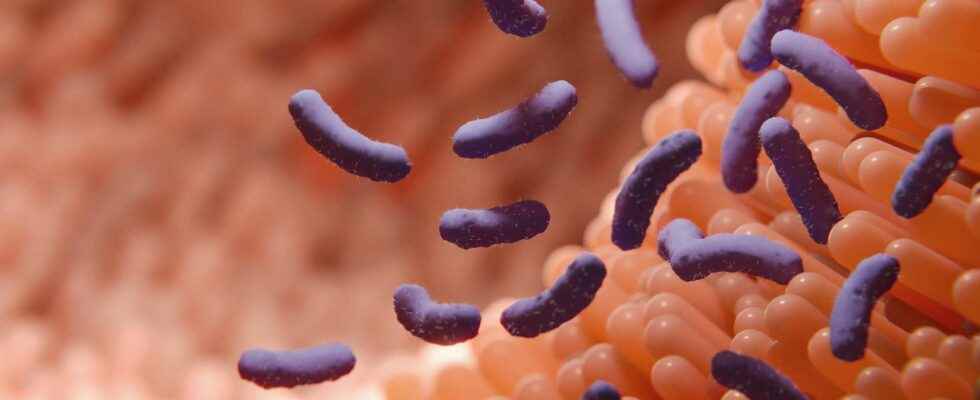A very common additive, E415, which serves as a thickener could be digested by certain bacteria in our microbiota. The health implications are still unknown at this time.
You will also be interested
[EN VIDÉO] The intestinal microbiota, a precious ally for our health In the body, there are different microbiotas: that of the skin, the mouth, the vagina… But the most important is the intestinal microbiota. Scientists have known about its potential for a long time, but the development of new techniques makes it possible to deepen research to describe the nature of host-microbiota interactions, those of microorganisms between them, and their impact on health.
Xanthan gum, or E415, is an additive present in many industrial foods in which it serves as a thickener. It is a long branched chain composed of four sugars : glucose, mannose,acid glucuronic and pyruvic acid. It is considered non-hazardous to health because it is not metabolized by the human body. However, a recent study published in Nature Microbiology indicates that xanthan gum has an effect, not on our cells, but on the bacteria of our intestinal microbiota. This additive has only been present in the so-called Western diet – where ultra-processed foods have an important place – for about fifty years. A beat of eyelashes in terms of evolution, yet intestinal bacteria have developed enzymes able to break down xanthan gum and digest it.
An additive digested by intestinal bacteria
One of bacteria in question belongs to the family of Ruminococcaceae. Its “xanthanophage” activity was brought to light by two researchers from the University of Michigan in the United States during a series of experiments carried out on human samples, laboratory mouse then bioinformatics analyses. ” Bacteria that can digest xanthan gum have been isolated from the gut microbiota of a surprisingly large number of people in industrialized countries », explains Sabina Leanti La Rosa, one of the researchers who participated in the project.
A second bacterium Bacteroides intestinalis, able to digest the additive was isolated from a single sample. The latter could digest the remains of xanthan gum after the first bacteria attacked the molecule whole. Does this affect our health? It still seems too early to tell. According to Sabina Leanti La Rosa: “ Based on this study, we cannot conclude if and how xanthan gum affects our health. But we can say that this additive affects the intestinal microbiota of people who ingest it through food. »
Authorized for a long time, xanthan gum has been re-evaluated by theEuropean Food Safety Authority (EFSA) in 2017. The article concludes that xanthan gum is not dangerous to health, although it may produce laxative effects in some people. Already at that time it was mentioned that the additive ” could be partially fermented during its passage through the large intestine by the action of the intestinal microbiota “. The study conducted at the University of Michigan confirms this. E415 is not the first additive suspected of altering the intestinal flora ; E171 and E466 could be involved in inflammatory problems in the gut.
Interested in what you just read?
